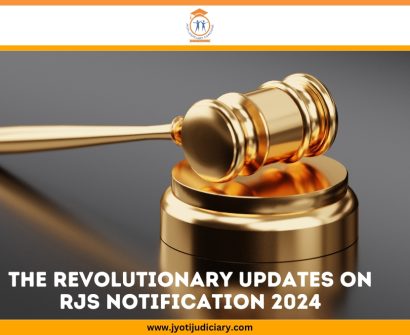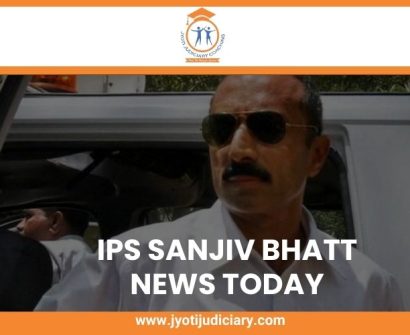
The National Confederation of Dalit and Adivasi Organizations (NACDAOR) has scheduled a one-day nationwide strike, or “Bharat Bandh,” in protest of a recent Supreme Court decision that appears to have subclassified the backward castes under the reservation system as per the SC ST reservation latest news.
NACDAOR, as per the SC ST reservation latest news has called on members of scheduled castes (SCs), scheduled tribes (STs), and other backward castes (OBCs) to take part in non-violent protests in order to bolster their argument and demand more protection and representation for marginalized groups.
what is creamy layer?
- To know what is creamy layer, it is referred to those from a backward class who have made social, economic, and educational advancements are referred to as being in the creamy layer. Individuals in this group are not eligible for professional and educational benefit programs funded by the government.
- The Sattanathan Commission coined the phrase “creamy layer” in 1971. The commission mandated that the creamy layer not be counted against civil post reserves.
- The present definition as to what is creamy layer has not altered, with the exception of the income ceiling.
sc/st creamy layer income limit
- As per the sc/st creamy layer income limit, for non-government workers, an annual income of Rs. 8 lakh is now the cutoff amount.
- For children of public servants, the sc/st creamy layer income limit is set by the parents’ status rather than their income.
- According to an explanation of October 14, 2004, the creamy layer calculation does not include income from agricultural land or salaries.
sc st reservation supreme court judgment
- Petitioners from the SC/ST/OBC categories who were denied MBBS admission under the MP Unreserved (UR) Category Government School (GS) quota for 2023-24 were granted relief by a bench of Justices B R Gavai and K V Viswanathan. These petitioners in the sc st reservation supreme court judgment were more deserving and had higher entrance exam scores than those who were ultimately admitted.
- In a historic sc st reservation supreme court judgment, the Supreme Court ruled on August 1, 2024 that states may designate subcategories within the SC and ST categories. This ruling said that authorities should consider effective metrics over quantitative ones when deciding what constitutes acceptable representation.
sc st reservation news supreme court: Quota System
- On August 1,2024, the Supreme Court gave states permission to divide SCs and STs into smaller groups when determining whether the class is sufficiently represented. The Supreme Court further clarified that state governments could not make subclassification decisions based on “whims” or “political expediency,” but rather on “quantifiable and demonstrable data” concerning backwardness and representation in government jobs.
- As per the sc st reservation news supreme court, by a majority decision of 6 to 1, the Supreme Court decided that subclassification within the SC and ST reservations is acceptable. In the case, up to six different views were given.
- The seven-judge panel according to the sc st reservation news supreme court, presided over by Chief Justice of India DY Chandrachud, overturned a previous ruling in the EV Chinnaiah case, which had maintained that sub-classification was prohibited since SC/STs constitute homogenous classes.
sc verdict on reservation: Key Demands by the NACDAOR
- As per the sc verdict on reservation the organization, which claims the Supreme Court’s August 1 ruling jeopardizes the constitutional rights of SCs and STs, has urged the Center to reject the ruling.
- It has demanded that a new Act of Parliament be passed in order to handle reservations for OBCs, SCs, and STs. In order to protect these provisions from judicial interference, they insist that this Act be added to the Constitution’s Ninth Schedule.
- To guarantee their appropriate representation, caste-based data on SC/ST/OBC employees working in government services must be made available right away.
- To hire judges and judicial officers from all societal backgrounds in order to attain a 50% representation of marginalized populations in the higher judiciary as per the sc verdict on reservation.
- Dealing with and filling all backlog positions in state and federal government agencies, as well as public sector projects.
sc st reservation supreme court judgment today
- According to the bench as per the sc st reservation supreme court judgment today, the idea should be used for both vertical and horizontal reservations. While each of the legally designated groups (such as SC, ST, and OBC) is subject to vertical reservation separately, additional beneficiary categories, such as women, veterans, the transgender community, and people with disabilities, are covered by horizontal quota, which cuts across vertical categories.
- According to the court as per the sc st reservation supreme court judgment today, the petitioners’ admission to Madhya Pradesh medical colleges for the 2023-24 academic year was refused because the horizontal and vertical reservation processes were applied incorrectly. As to the statement, a deserving candidate from the reserved category who meets the eligibility requirements for the ‘General’ category of the horizontal reservation must be given a seat from that category.
Though well-intentioned, the shift toward sub-classification within SCs and STs entails serious risks that could jeopardize the larger objective of social justice. The discussions in the Constituent Assembly, legal precedents, and pragmatic reasons all highlight the risks associated with splintering these communities. The emphasis should continue to be on resolving structural discrimination against SCs and STs as a whole and on collective upliftment.
The ruling of the Supreme Court merits serious review. The larger objective, which is to build a more just and equitable society where the wounds of caste-based discrimination are fully healed, must not be overlooked in the pursuit of refinement.
SC ST reservation latest news FAQs
- Does creamy layer apply to SC, ST?
The Union Cabinet declared unequivocally that reservations for Scheduled Castes (SCs) as well as Scheduled Tribes (STs) are not subject to the creamy layer principle.
- What is the Supreme Court Judgement on non-creamy layer?
The Supreme Court stated that the ‘creamy layer’ of Scheduled Castes needed to be kept out of the quota benefits intended for the SC categories in the ruling permitting subclassification of Scheduled Castes. Currently, the Other Backward Classes reservation is the only use for the “creamy layer” idea.
- What is the landmark Judgement for creamy layer?
The Court maintained the government’s action in the 1992 Indra Sawhney ruling, ruling that the OBCs’ advanced sections, also known as the creamy layer, must not be included on the list of recipients of quota benefits. Additionally, it stated that SCs and STs cannot be considered to be in the creamy layer notion.
- What is the latest Judgement on reservations?
The Supreme Court ruled by a majority of 6: 1 that subclassification within the Scheduled Caste and Scheduled Tribe reservations is permissible. Up to six different opinions were expressed in the case.
- Which is the latest reservation amendment?
The deadline for ending the reservation of seats for members of Scheduled Castes as well as Scheduled Tribes in the Lok Sabha and State Legislative Assemblies has been extended by ten years by the One Hundred and Fourth Amendments to the Indian Constitution.
- Who started SC ST reservation in India?
William Hunter and Jyotirao Phule came up with the original idea for the caste-based reservation structure in 1882. The reservation system as it exists now was first established in 1933 when British Prime Minister Ramsay Macdonald presented the “Communal Award”.
- Can the Supreme Court remove reservations?
The Civil Service, government employment, and educational institutions are all subject to a permanent reservation system under the Constitution. It is nearly hard to alter this. The remaining categories of reservations fall under Articles 15 and 16, which protect essential constitutional rights.
- Can a creamy layer get reservation?
Regarding open positions that the government may determine to be filled, preference is given to individuals who fall within the OBC category. OBC applicants from the creamy layer are not eligible for any kind of reservation or relaxation. ‘OBC’ refers to ‘non-creamy layer OBC’ in the questions that follow.
- What is the landmark judgement on scheduled caste?
In a historic ruling, the Supreme Court maintained the ability of governments to divide Scheduled Castes and Scheduled Tribes into smaller protected groupings in order to give underrepresented groups more representation.
- Should we continue to have reservation policy for SC ST or not?
The reservation shouldn’t go on! Creating a “race to backwardness”: the reservation policy has prompted demands for reservations in government positions and educational institutions from a number of newly established communities, including prominent regional caste groupings.
- What happens if a reservation is removed?
The goal of reservations is to restore equality between the prevailing class and the subalterns. Therefore, some OBC members and the entire general class will combine to form one dominant class if the reservation is removed. The remaining ones will continue to exist as they are.
- Who gets more benefit, SC or ST?
In terms of percentage, SC has 14.5% whereas Schedule tribe has 7%. Therefore, it seems that SC benefits more. These figures, though, represent a percentage of their total population. It doesn’t help one over the other in that way.
- Is reservation good or bad?
In India, it is the government’s responsibility to ensure equality of status and opportunity. One weapon against injustice and social oppression of particular classes is reservation. Reservations, also referred to as affirmative action, aid in the advancement of underprivileged groups.
- Which is better OBC or SC?
They have historically been poor, ignorant, and mostly engaged in farming and herding. Compared to the general category or upper castes, OBCs are less advanced academically and socially. OBCs believe they are better than Scheduled Castes (SC).
With the goal of giving students the best coaching available for law entrance exams including the CLAT, AILET, and various other numerous state judiciary exams, Jyoti Judiciary Coaching, India’s Finest educational Platform, was established. Come enrol now with Jyoti Judiciary!
For any latest news, legal topics, judiciary exams notifications, patterns, etc watch Jyoti Judiciary’s YouTube channel for legal videos for any updates at https://youtube.com/@jyotijudiciarycoaching4852?si=2cwubh9d2A9urwJf









